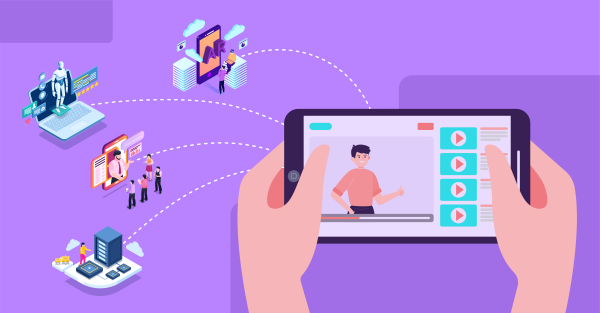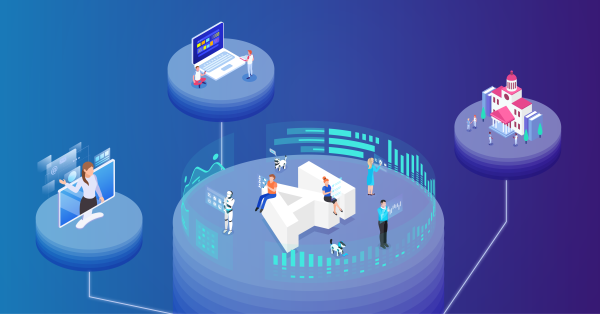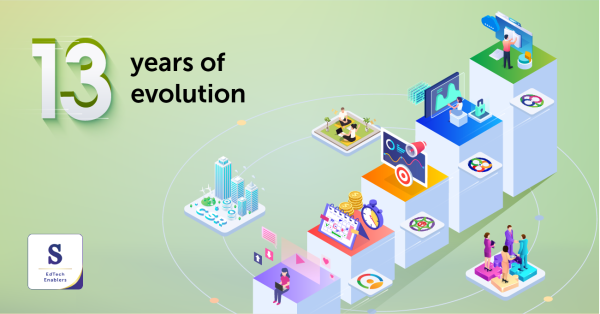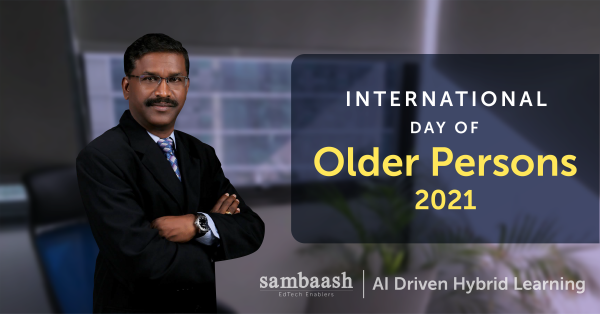
With its humongous potential to drive and scale up economies and capabilities of businesses, artificial intelligence or AI is one of those things that we as humans have been wanting to tap into for many years.
In 2020, everything may not have gone as planned for humanity but disruptions can be a great opportunity if we use them well. In the case of AI, that’s what has happened. With support from data scientists, scholars, innovators, entrepreneurs, and creative stalwarts, AI has come to become a huge part of corporate learning and the education sector.
This global adoption of AI in EdTech & the corporate learning sector has transformed both - the way we teach and learn. There is a unified focus towards personalization, accuracy, learning analysis coupled with expertise and convenience of the learner as well as the mentor.
AI as an aid in digital transformation today
According to a report named “Sizing the price” there are 4 main ways of how we essentially use AI for different kinds of intelligence. And each of these can be used effectively for every sector of business.
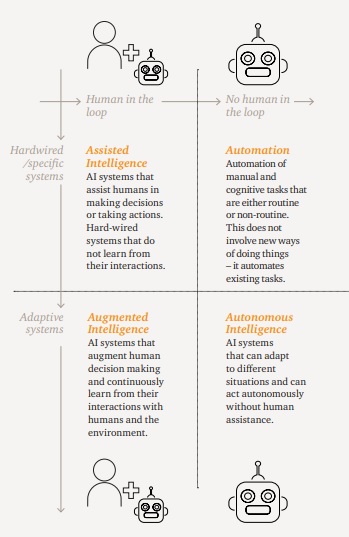 Image Courtesy: Sizing the price report.
Image Courtesy: Sizing the price report.
How does AI fit into the education sector?
For the most part of our childhood, we learnt through a staple medium of education with a physical classroom, a teacher to explain the concepts as well as textbooks & study materials. To assess our progress, we had exams and physical tests. But today, there is a larger shift we can see in this sector.
Intelligent learning interventions such as that of AI-powered virtualized mentors and such have taken over a huge market. It solves challenges of logistics, productivity, and efficiency by utilizing models & machine learning techniques to provide real-time learning facilitation and mentoring, thereby enhancing the learning outcomes and scaling up the blended learning pedagogy.
Digital technologies and learning
This smart shift towards AI-based learning and teaching models has altered the dimensions we apply in education. There is a decent amount of focus given to experiential learning and resource allocation. AI is distinctive in terms of its complexity and yes, its implementation does involve certain digital prerequisites like BIG Data, real-time data integration, infrastructure, bandwidth as well as a mindset shift of continuous training of models and usage.
Understanding this leads to our most important question, what is its role in educational transformation?
AI has a huge scope for its utilization in the sector of education. Here are some ways in which AI can be pretty useful:
- Self-paced learning: While it is true that a curriculum will and has to be decided uniformly, expecting the cohorts to learn at the same pace is a little unreasonable. In a traditional setting, since everyone is listening to the same mentor at the same pace, grasping the concepts and retaining them in memory to apply them as needed is the first challenge. With AI coming into this fore, self-paced learning can take a front seat wherein a learner learns from the comfort of his home and pace.
- Virtual mentorship: It enhances the productivity of mentors by automating learning facilitation and increases the RoI by letting mentors manage more cohorts simultaneously. For employers too, it helps in the supervision and skills transformation of employees on a real-time basis.
- Predictive analysis: AI-powered virtual mentorship, real-time assessment, live interactional chat-bots, etc that are quite beneficial for the learners as it trains them for learning competency and employability. Based on these data points of the learning journey, various predictive models can be assembled to provide insights into the learner, the learning journey, the course content, skills upgrading versus utilization, amongst many other things.
- Smart content: AI-modeling can help with curating and managing digital lessons using digital textbooks, bite-sized modules as chapters, study materials, etc. The use of visualization and simulation as a model to study is a great plus of Ai-powered education.
- Task automation: Everything that can be done manually today can not just be automated by AI but also driven through autonomous intelligence, to say the least. Be it auto-scheduling, auto-assessing, chatting, or mentoring virtually, using AI can help in each of these tasks and many more.
The role of AI in educational transformation can be to automate, curate, mentor as well as analyze a learner’s competency, her skills acquisition, and progress at a large scale that a human being cannot- simply due to the challenges of logistics, time, and comfort. There are a lot of ways that AI can help with, but the aforementioned pointers could be a beginning to the vast road of transformation.
What are your thoughts about AI in transforming the education sector? Tell us what you think about it.

